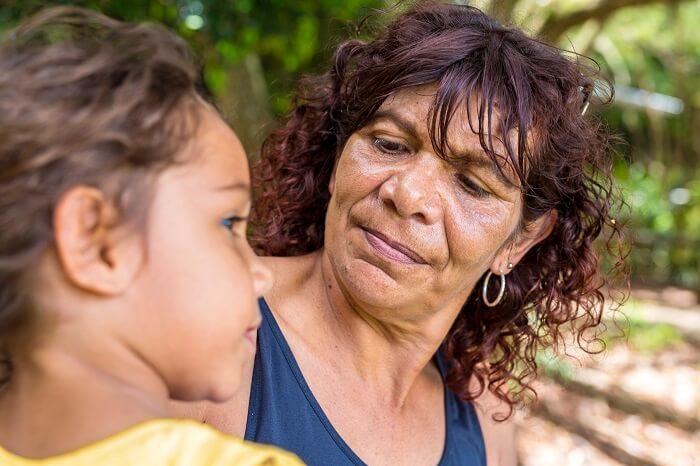
As Australia’s leading cancer charity, our goal is to stand by everyone affected by cancer. But we know that Aboriginal and Torres Strait Islander peoples experience higher rates of cancer and are more likely to be impacted greater from cancer than non-Aboriginal and Torres Strait Islander people.
This is why we have committed to an organisational Reconciliation Action Plan (RAP) and support all approaches to reduce health inequities that Aboriginal and Torres Strait Islander peoples face.
In 2023, we launched our re-designed Cancer Council NSW cancer information website produced together with Aboriginal and Torres Strait Islander peoples during in National Reconciliation Week.

Raising cancer awareness and understanding in community
The new website will better serve Aboriginal and Torres Strait Islander communities with tailored information about cancer, staying healthy, getting support.
The website also includes Aboriginal cancer stories such as Scott Lyons’. Scott is a personal trainer from Redfern whose grandmother is a breast cancer survivor. Her experience with cancer inspired Scott to set a positive example and promote healthy lifestyle choices to prevent chronic diseases like cancer.
To re-design the website, we consulted extensively with community, working with Ngakkan Nyaagu (NGNY), the RAP Working group and Cancer Council NSW Aboriginal Advisory Committee.
If you haven’t seen it already, we invite you to explore the new site and share it far and wide!
Working with community members like Uncle Clarke Scott
To deliver our RAP and the new website, we have been collaborating with Uncle Clarke Scott, who is a member of our Aboriginal Advisory Committee.
Uncle Clarke is a Wiradjuri man with close connections to community across the Central West and Riverina regions of NSW and a wealth of experience working in Aboriginal community health.
For Uncle Clarke, awareness, collaboration and trust are key: “I think it’s mainly about the word being out among the community. So, with the Advisory Committee having the connection to community to be able to pass on the information from Cancer Council with their pamphlets and all that type of thing,” he says.
Uncle Clarke also thinks employing Aboriginal staff is vital for fostering culturally safe advice and support and “to help the Aboriginal community with understanding cancer”.
And he believes we are making progress. He encourages community members he encounters to call Cancer Council’s 13 11 20 support line with any medical concerns, as our 13 11 20 operators “will be able to refer to specific Aboriginal Organisations if needed”.
In its first months, the new portal received:








